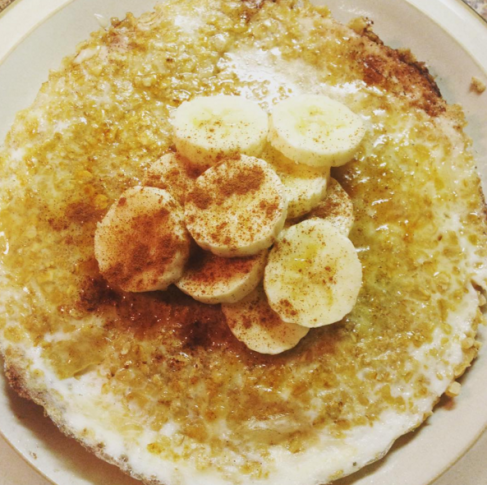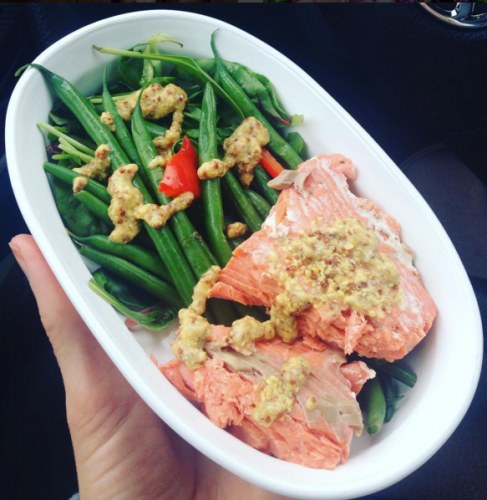Are you eating the foods you should be for energy, recovery and peak performance?
In a sport like running where food is fuel, we sometimes forget that eating well is more than just bars, gels, salt pills and energy drinks.
To get optimal performance AND recovery out of your body, you need to make sure that you are providing the highest quality fuel you can. Different foods provide energy at different rates. Some foods are good for a quick burst, while others provide constant energy. For improved stamina, the right choice of fuel can keep you going all day long.
My top 5 Tips for peak performance and endurance are:
- Include great quality carbohydrate’s like Oats– one of my favorite source of slow-digesting carbohydrates essential for optimal performance. Oats provide good, long-lasting energy in the form of low glycemic carbs and are so versatile you can enjoy them as oatmeal, in your smoothies or create a pancake and muffins with it as well. Here is my uber quick and perfectly balanced Oatmeal Pancake Recipe: ½ cup organic oats, 5 egg whites, tsp. cinnamon, Tsp. ground flax seed. Combine all ingredients directly in your pan, lightly heated with coconut oil and cook over medium heat until the bottom is cooked through, then flip and cook another 2-3 minutes on the other side. Top with 1 Tbsp. almond butter , 1 tbsp raw honey and some fresh berries
- Nuts and Nut Butter – Because they’re a natural combination of protein and healthy fats, nuts (and nut products) are a staple in many athletes’ diets. They are fabulous to help balance your blood sugar, and keep you feeling satiated long after you’ve eaten them. Great choices are raw almonds, cashews, pecans, walnuts and pistachios.
- Organic Berries – Antioxidants such as vitamins A, C, and E help protect against oxidative stress and free radicals that form in the body during physical activities —and berries are one of the best sources out there. Choose berries with the most intense colors—blackberries, raspberries, blueberries—because they have more of those phytochemicals and protective substances. Toss them into a smoothie, add them to your oats, or just eat them by the handful.
- Fatty Fish – Salmon, mackerel, and trout, are good sources of lean protein and omega-3 fatty acids, which help reduce inflammation that can hamper athletic performance and contribute to chronic conditions like heart disease. If you’re not a fish eater then try adding 1 Tbsp. good-quality fish oil that you can put in your smoothies.
- Hydration – And finally not so much a tip as it is more of a RULE of healthy living every day; is to drink enough water! How much you need to drink varies greatly between individuals based on size, sweat rate, activity levels and weather etc. As an athlete you should pay close attention to your thirst and alternate plain water with low-sugar electrolyte drinks and options like coconut water or plant-based options like Genuine Health Active Fuel to top up your salts and minerals.
Bonus tip would be to ensure you are getting enough restorative sleep at night so that your body can optimize your training by sloughing up any of the debris of the day and healing your body on a cellular and tissue level.
To book a private consultation with Jenn and create a customized plan to help you achieve your training goals please email jenn@jennpike.com
http://www.icbookstore.ca/thesimplicityproject
Twitter @simplicityjenn
Instagram @jennpike
Facebook.com/jennpike








 Current Issue
Current Issue Previous Issue
Previous Issue Prior Release
Prior Release

This is great nutritional advice. THANK YOU for not suggesting any supplements!!!!!